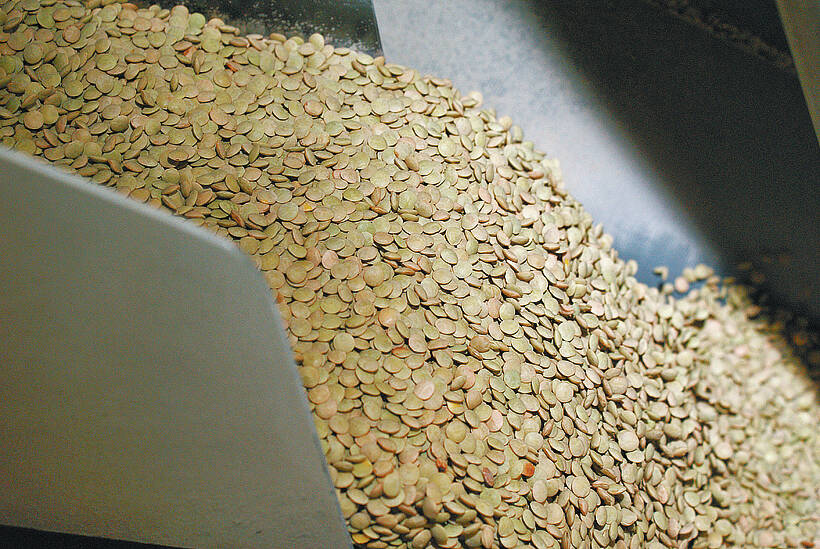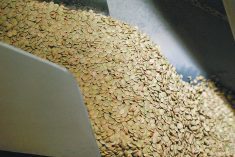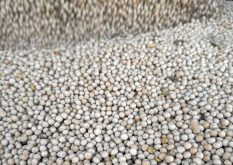Gov’ts mimic action heroes
To do or not to do, that is the question governments face as grain prices fall.
Here in Canada, Ottawa is taking a do-nothing approach. The government seems unwilling to go beyond the existing Net Income Stabilization Account and crop insurance programs.
On the other hand, farmers have been helped by the do-nothing approach to the falling Canadian dollar.
In the United States, there is a good show of doing something.
The administration expanded its food aid plan, buying 2.5 million tonnes of grain to give to poor countries in an attempt to reduce supplies at home.
Read Also

Green lentil market oversupplied
Farmers in Western Canada can expect price pressure on their new crop of green lentils, as the available supplies among the world’s major lentil-growing nations increase significantly.
Efforts by some lawmakers to reverse the subsidy-cutting aspects of the 1996 Farm Bill were defeated. But senator Byron Dorgan of North Dakota, a longstanding opponent of Canadian wheat imports, is still busy.
The Senate last week approved his amendment to the U.S. Customs Service’s 1999 budget requiring the agency to study the “efficiency and effectiveness” of forcing Canadian wheat and barley to move through a single port of entry until Canada discloses how it prices the grain.
For maximum effect, Dorgan suggested the tiny Fortuna, N.D., crossing where the customs office closes at 10 p.m.
Dorgan’s efforts are political grandstanding, but they keep the plight of Northern Plains farmers in the light.
Meanwhile, Australia is doing something by sending a team of officials to the U.S. to complain about the wheat donation policy.
Indonesia, usually a top buyer of Australian wheat, is getting 500,000 tonnes from the American aid package. There are indications Washington might donate a further one million tonnes, significantly hurting Australia’s chances for sales.
In Argentina, the federal agriculture secretary exhorted farmers to do something. He said Argentine farmers should boost production to fight unfair foreign grain subsidies.
He lambasted European Union and American agricultural subsidies.
But in the European Union, it’s clear the government’s lavish assistance is a case of doing too much.
When farmers in Canada and elsewhere saw falling prices last spring, they reduced wheat acreage.
But EU wheat acreage increased because market signals were masked by domestic subsidies. The surplus, in turn, will probably be disposed of with the help of more subsidies that lower the world price even more.
In the final analysis of to do or not to do, I lean to the latter. It does less damage.














